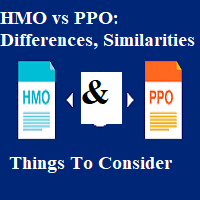Who regulates the insurance industry? state or federal government. Many people often ask this question. Deciphering the rules governing the insurance industries requires an understanding of the relationships between federal regulations and state-level intervention.
In this guide, we will answer this question and explore how these two levels of government influence the insurance company activities.
READ MORE: What Is Self-Insurance
Who regulates the insurance industry? state or federal government
The State and Federal governments interact closely in the regulation of the insurance sector. However, insurance regulation in the US is mostly a state affair.
The McCarran-Ferguson Act of 1945, which expressly grants state control and taxation of the industry precedence over federal law and characterizes it as being in “the public interest,” is the source of this regulatory framework. Every state has its laws and regulations.
Within their borders, individual states create and implement regulations about insurance practices. To ensure a more comprehensive framework, the federal government does, however, contribute to oversight through several laws and agencies.
To preserve uniformity, the National Association of Insurance Commissioners (NAIC) encourages collaboration between states.
The federal government’s involvement seeks to solve greater concerns and harmonize standards, while the states handle day-to-day rules. This cooperative strategy aims to establish a fair and efficient regulatory framework for the insurance sector.
READ MORE: PIP Insurance: What It Covers And All You Need To Know
How does the state government regulate the Insurance industry
The goal of state regulation of the insurance business is to protect consumers, ensure fair practices, and preserve each state’s financial stability through a thorough and intricate procedure. The oversight of insurance businesses operating within their jurisdiction is a crucial responsibility of state insurance departments.
Additionally, they ascertain that insurance policies adhere to state legislation when they assess and approve them. To avoid unfair pricing, state permission is frequently required for premium rates.
States also control the financial stability of insurers to ensure they have enough funds to meet their obligations. This entails setting reserve needs and conducting routine financial assessments.
Insurance commissioners, who are in charge of state insurance agencies, have the power to limit market access by granting or refusing licenses to insurers, agents, and brokers.
State regulators address consumer complaints, resolve disputes, and enforce laws against fraudulent practices because protecting consumers is a top responsibility. The state must keep an eye on market behavior, stop unfair competition, and support ethical business activity.
Moreover, states frequently work together via bodies such as the National Association of Insurance Commissioners (NAIC) to create model legislation and exchange best practices, promoting uniformity in state regulations.
READ MORE: What Is An Insurance Carrier
How does the federal government regulate the Insurance industry
The federal government’s role in regulating the insurance industry is very limited compared to that of the state government.
Instead of directly regulating the insurance companies, the federal government primarily focuses on ensuring a stable and consistent framework across states. One key element is the McCarran-Ferguson Act, that grants states the full authority to regulate insurance unless federal laws apply in some cases.
Certain federal agencies, like the Federal Insurance Office (FIO) and the National Flood Insurance Program (NFIP), contribute and aid in monitoring the industry activities
The FIO monitors the insurance industry at the national level and advises the government on insurance-related matters. Additionally, the Federal Emergency Management Agency (FEMA) also oversees the National Flood Insurance Program (NFIP), offering flood insurance and influencing relevant policies.
The bottom line
The state government regulates all the activities of the insurance company. However, while the federal government doesn’t dictate day-to-day insurance operations, it intervenes in some situations, such as insolvencies of large insurers, to protect policyholders.
In general, the goal of federal intervention in the insurance industry is to protect national interests, handle systemic issues, and preserve a coherent regulatory framework.





